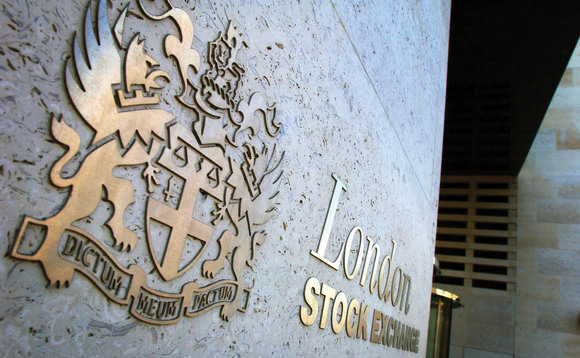The largest listing on the London Stock Exchange is set to go ahead next week as GlaxoSmithKline investors voted to demerge its newly-created consumer healthcare unit Haleon.
The vote to demerge passed overwhelmingly on Wednesday (13 July), with 99.8% voting in favour of the break-up.
Next Monday (18 July), the UK's pharmaceutical giant will part ways and Haelon will stand alone as its own stock. It is expected to seek a valuation of around £45bn, making it not only the biggest UK listing in a decade, but the largest in Europe.
Despite the overwhelming support from shareholders at the vote, GSK's share price has dropped slightly since the vote on Wednesday, down 0.9%, according to data from FE fundinfo.
The new shares will be priced on Sunday and will be dependent on the GSK share price at close of play today (15 July).
GSK is planning on retaining around a 14% stake in the company, which it is planning to sell off over time, as does Pfizer, which owns 32%. However, neither owner can start offloading shares until November.
Commenting on Haleon's upcoming listing, Susannah Streeter, senior investment and markets analyst at Hargreaves Lansdown, said that the new business had a strong starting point, with operations across 100 countries, and a string of multinational brands, which include Sensodyne, Voltarea and Panadol. But, it is running headfirst in a challenging macroeconomic backdrop, with rising inflation and the prospect of a recession already putting off many companies from listing so far this year.
Investment Week previously reported that LSE listings were down 94% versus this same period last year, and that the drought was particularly bad in the small-cap AIM space, partly because the aforementioned economic environment is making it hard for companies to achieve a premium valuation.
For Haelon, Streeter said: "It will have to be nimble though due to the cost inflation, which has whipped up across the consumer goods industry.
"Given its successful products, such as Sensodyne toothpaste and Advil and Voltaren painkillers, are household names, its big brand pulling power should help it hang onto customers, who may trade down other products in shopping baskets instead."
Stock Spotlight: Nike a long-term winner thanks to centre court performance
She continued on GSK's thoughts behind the demerger: "A more focused consumer business will help boost sales and that could push margins higher once research and development production costs are covered.
"The aim is for a larger proportion of each additional item sold to drop through to profit and price hikes to feed through from last year, which should help.
"The idea behind the demerger is for value to be unlocked in both businesses, but GSK is parcelling off a considerable quantity of its sizeable debt pile into Haleon, expected to be around £10bn."
The debt factor is a big one for Haleon, as Streeter explained it could impact the development of its dividend from the offset.
"It will start life with a net debt to cash profits (EBITDA) ratio of up to 4.0, compared to the 2.0 times planned for New GSK, which will focus on the pharmaceutical business.
"With the New GSK dividend expected to tick along at a lower level from 2023, and the consumer business likely to be cutting debt at least initially, it could take years for the overall dividend to return to its current level. As with any dividend, there are no guarantees."
Chris Beckett, head of equity research at Quilter Cheviot, was also concerned about the amount of debt the company would be starting off with but said that "sentiment has been positive for Haleon and it should trade at a premium compared to its rival Reckitt".
This is not the first big change up GSK has faced this year, with the failed Unilever takeover still a recent memory for investors.
At the start of this year, Unilever attempted to buy GSK for £50bn but the deal fell apart and the company was harangued by shareholders, including famed fund manager Terry Smith who was called it a "near death experience".
But Beckett said that enough time had passed and "the world has come a long way since the failed Unilever takeover".
"With its defensive characteristics and the current market volatility showing no sign of abating, Haleon will not necessarily be a bad place to be come day one of listing," he added.





